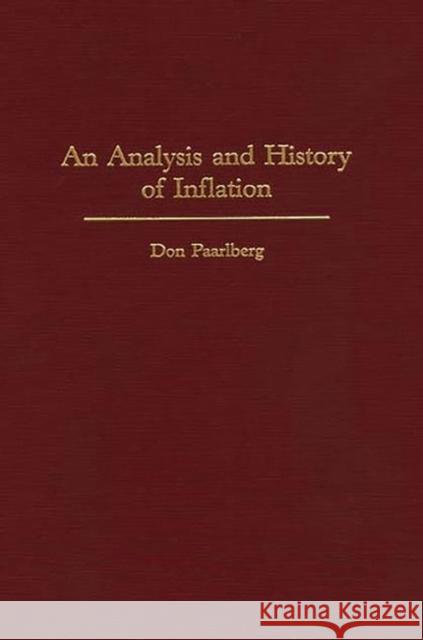An Analysis and History of Inflation » książka
An Analysis and History of Inflation
ISBN-13: 9780275944162 / Angielski / Twarda / 1992 / 208 str.
This history and analysis examines fifteen great inflations--from Ancient Rome to the French Revolution to post-World War I Germany to modern-day Brazil--to provide an understanding of the causes of inflation. A unique feature of the book is the evidence presented that a moderate degree of inflation is usually accompanied by increased economic activity. Contrary to the views of many, moderate inflation appears to be welcomed by most people and assists in returning incumbent political leaders to power. In addition, the money illusion, the belief that money has constant value over time, is shown by the author to be grievously in error.Presenting views which are at odds with much of mainstream economics, Paarlberg concludes that inflation is caused by an excess of money, and since the creation of money is a government monopoly, governments are responsible for inflation. Additionally, various macroeconomic theories are unable to account for gyrations of production and prices. The best explanation for these matters, therefore, is to be found in institutional economics, which takes into regard whatever forces exist rather than focusing on a select few while purporting to hold others constant. This thoughtful work will be of interest to scholars, students, and laypersons in economics and economic history.











